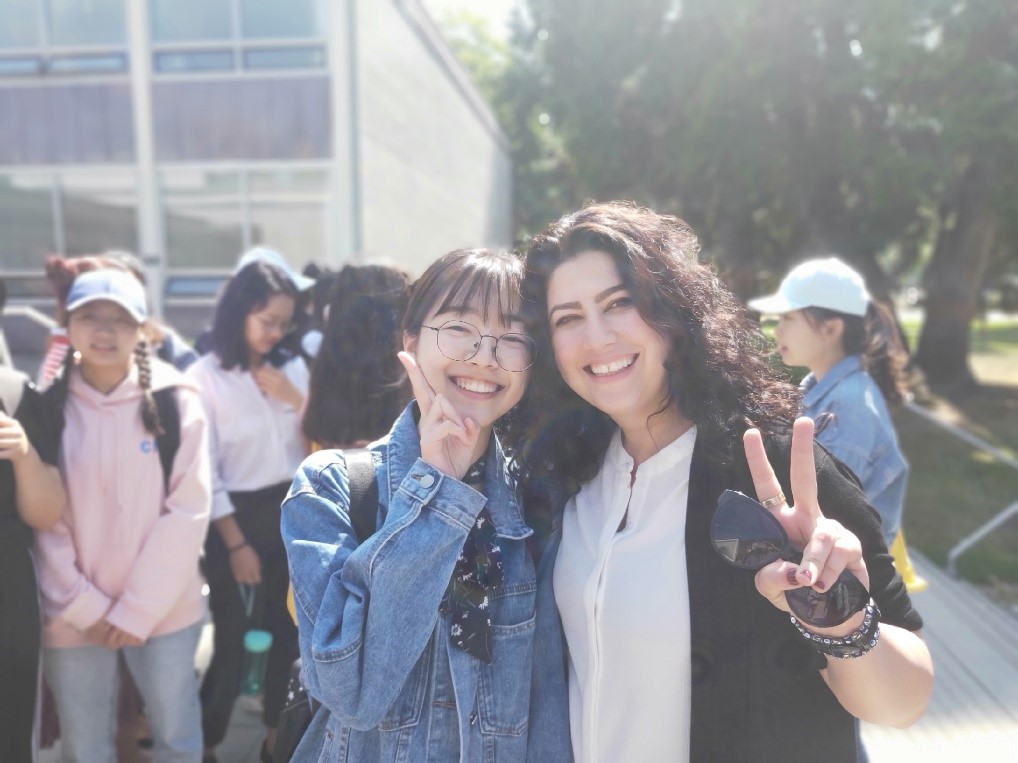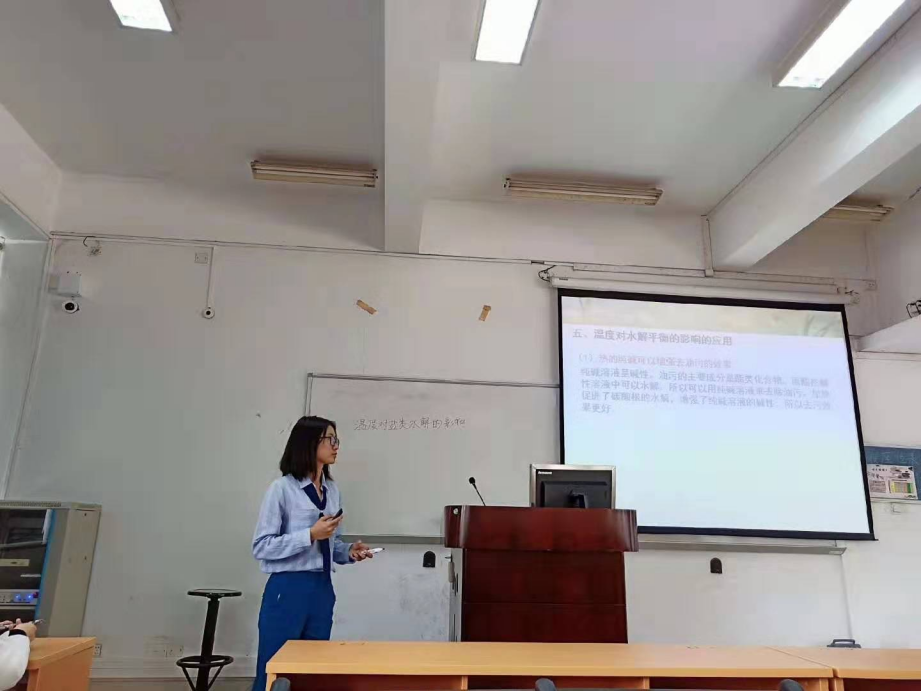
Likes
Editor's Note: The results of the fifth SCNU English Writing and Short Video Contest have been announced on the website of the Office of International Exchange & Cooperation of SCNU (see results). We congratulate all prize winners on their outstanding performance. Winning entries will be published in this column.
-------
By Kang Yingxuan
Decades later, as Professor Fan Fang witnessed the transformative impact of his research on the lives of people in need, he recalled the unease of his early years as a teacher in rural Hunan province.
It was during those formative years that the seeds of his future dedication were sown, ultimately growing into towering achievements in the field of psychology. His work has touched countless left-behind children, survivors of the 2008 Sichuan earthquake, and people struggling through the COVID-19 pandemic, leaving an indelible impact on society.
Professor Fan was born into an ordinary family in rural Hunan in the 1960s, a time of scarcity compared to today. As the eldest child, with two younger brothers and a younger sister, he bore a significant responsibility to support his family. To provide for the household, the boys often helped with agricultural work during vacations. After graduating from college, Fan chose to become a teacher in a local secondary school—a pragmatic decision, as people at that time and in that region seldom had the luxury of pursuing their dreams.
Teaching basic mathematics, biology, and chemistry in middle and high school proved limiting for Fan, who felt his capabilities were not being fully utilized. The lack of fulfillment sometimes left him feeling adrift. However, his strong sense of responsibility drove him to sublimate his frustration into proactive actions that supported his students. He encountered wrenching scenes, such as a young child barely over ten caring for several siblings on his own, or an elderly woman struggling to look after multiple children. These experiences exposed Fan to the harsh realities faced by left-behind families, sparking within him a determination to help. He devoted himself to conscientious teaching, and over time, a sense of recognition and accomplishment began to grow quietly within him. He eventually realized just how meaningful his work was.
Eight years into his teaching career, an opportunity arose when Shaoyang College began recruiting outstanding teachers due to the expansion of enrollment in Chinese universities. Fan seized the chance. Since his tireless dedication and sincere commitment to his students, he was recommended for a new teaching position at the college level. This experience as a secondary school teacher laid the foundation for his future research on left-behind children, as well as other children facing adversity.
Fan's journey was marked by his commitment to both his career and his family. While working at Shaoyang College, he continued to support his siblings, who all pursued higher education through their own efforts. Fan also married and started a family of his own. He began exploring psychology by writing science popularization articles for educational journals, laying the groundwork for his future research. Through his diligent work, he earned the title of associate professor. At Shaoyang College, Fan achieved a fulfilling balance between professional advancement and family stability, with the rewards of his career and family life reinforcing each other.
Around the turn of the Millennium, Associate Professor Fan, having achieved a level of stability in life, resolved to re-enter the campus, continuing his journey of scholarly pursuit and self-improvement. Fan chose applied psychology as his field of specialization, which would empower him to conduct more meaningful research by deepening his understanding of children. To accomplish this ambition, Fan had to study as a student throughout semesters while continuing to work as a faculty throughout vacations with the support of his supervisors and colleagues.
It was exhausting, however, Fan, with a determined mind, managed to navigate the challenging path. Despite time constraints and limited English skills, Professor Fan overcame the challenge. Ahead of an international conference, he practiced diligently for a month, inviting an English-major graduate student to dinner each evening to help him improve. The unrelenting effort ultimately contributed to Professor Fan's growing prominence in the academic community. Nevertheless, Fan kept moving forward without stopping. After graduating with a master's degree, Fan persisted in his pursuit of a PhD in clinical psychology, focusing on positive psychology and psychological therapy, at the Xiangya School of Medicine, Central South University.
Fan advanced his academic career not only motivated by an unyielding resolve to reach new heights of scholastic success but also by a desire to help people in need and a deep love for our motherland. While on a visiting scholarship in the United States, upon hearing the news of the 2008 Sichuan Earthquake, he immediately contacted his colleagues in China and returned home the very next day. Being aware that psychological support was urgently needed in the earthquake-stricken area, Fan and his team instantly set about training psychological aid volunteers so that they could provide professional support to individuals evacuated from the debris. In addition to offering immediate assistance, Fan conducted studies to understand the mental processes of victims and to enhance the crisis counseling system. One significant project was a longitudinal study spanning 20 years, focusing on the lasting impact of the earthquake.
It was a lecture on volunteer training that brought Fan into connection with SCNU. He was invited to join the school of psychology in SCNU. After becoming an SCNUer and then attaining professorship as an influential academic figure in China, Professor Fan led his team in guiding mental health maintenance in multiple regions, both in China and abroad, contributing to overall mental well-being worldwide.
After the outbreak of the COVID-19 pandemic, drawing upon his extensive experience in psychological stress research and psychological aid, quickly organized a team to conduct psychological aid studies and social psychological monitoring. Subsequently, they established a mental crisis early-warning system and a social mindset monitoring database. Based on this work, they prepared policy advisory reports submitted to central authorities, which served as a reliable reference for the government.
Based on his extensive teaching experience and numerous research projects, including those related to the 2008 Sichuan Earthquake and COVID-19 pandemic, he has published more than 200 papers in domestic and international core journals. His significant contributions have made him a world-renowned figure in psychology. When asked about his motivation, Fan answers, "At the time, it never occurred to us that we would turn all those research findings into published papers. Our genuine goal was simply to assist those requiring support, whether they were left-behind children, disaster victims, or civilians under lockdown."
Though his journey was prolonged and demanding, Professor Fan never yielded to setbacks and always remained true to his aspirations. His achievements were further recognized when he was appointed as a Pearl River Scholars Distinguished Professor at the age of 48. Professor Fan remains deeply grateful to those who supported him over the years; without them, he acknowledges, he could not have reached his current accomplishments.
As a lifelong dedicator, who tirelessly pursues further education and high-standard scholarship, Professor Fan encourages young people to "discriminate desires from aspirations, place oneself in a larger frame of family and country, and cultivate a sense of mission." By doing so, he believes, one can maintain inner peace and navigate the uncertainties of life with resilience.
From a modest secondary school teacher in rural Hunan to a world-renowned psychology professor, Professor Fan's journey exemplifies how family and country sentiments can help one overcome challenges and make meaningful contributions to society.
What to read next:










